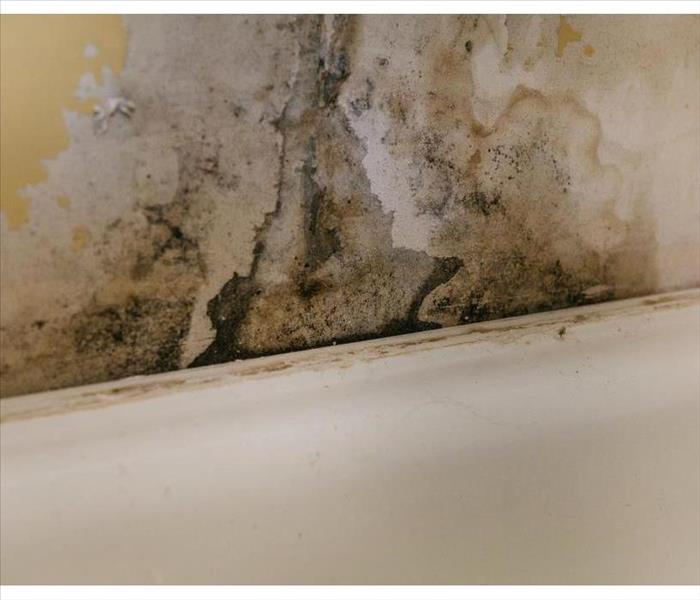Does Your Commercial Insurance Policy Cover Mold Damage?
9/9/2020 (Permalink)
After a flood, leak, or similar disaster, you do not just have to worry about water damage in your building. The increased moisture could also encourage the growth of mold. You may thus be wondering if your commercial insurance policy covers the cost of mold cleanup.
More About Mold
Mold is a fungus that reproduces using spores. These spores grow anywhere that has:
- Oxygen
- Heat
- Food
- Moisture
Mold can thus appear in many parts of your Ludville, GA, commercial building. It can spread on wood, paper, carpet, and drywall. It may also be in hidden locations such as the ducts. Mold becomes particularly problematic in humid or moist areas.
Mold and Insurance
To limit the spread of mold, you should thus address any moisture problems on your property right away. This is particularly important because most commercial insurance policies include fungus exclusions. In other words, they do not cover most losses that result from mold.
Limited Fungus Coverage
You may still have some mold insurance coverage, however. Many policies will help you pay for mold damage repairs if the fungus resulted from a specific loss such as a fire, sinkhole, or burst pipe.
This coverage applies to any direct damage or loss caused by the fungus. The insurance additionally covers mold remediation services. This includes the cost of tearing out and replacing walls to reach the contaminated areas. Any tests you perform to ensure the mold is gone should be covered, as well.
Keep in mind that this insurance is only available if you take all reasonable steps to limit the harm to your property. The coverage is also usually limited to $15,000 per year or occurrence.
You may be able to use your commercial insurance to pay for black mold cleanup. However, mold damage that does not result from a sudden peril may be excluded. You also may be denied coverage if you fail to take proper steps to mitigate mold growth.





 24/7 Emergency Service
24/7 Emergency Service
